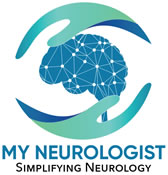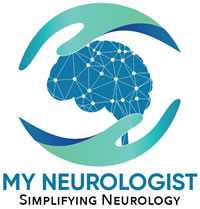What is a tic?
Tic is an abnormal, sudden, and difficult to control muscle activity, involving a single or a group of muscles. It can present as a physical body movement, or as a sound, with involvement of throat muscles. Tics can be fast and repetitive.
What other conditions may look like a tic?
Tics are differentiated from tremor, myoclonus, seizures, restlessness, or restless limb syndrome, clonus, myokymia, or dystonia. Distinction can be made based upon observation, history, and examination.
What are different types of tics?
For better understanding, tics can be divided in different types. One way to divide them is into simple and complex types, which is based upon the amount or type of muscles involved.
Another way is to divide them into motor and phonic types. Motor tics are abnormal movement, and phonic tics abnormal vocal sounds. Taken together, they are categorized in the following four types:
- Simple motor: Blinking, grimacing, frowning, facial movements, nodding, shrugging, etc.
- Simple Phonic: Coughing, throat clearing, sniffling, whistling, snorting, non-verbal sounds, etc.
- Complex motor: Touching, obscene or inappropriate gesturing, stomping, tapping, picking, bending, gyrating, spinning, etc.
- Complex phonic: Utterance of words and phrases, which can be obscene or inappropriate, repeating what is heard, again and again, etc.
Are tics voluntary or involuntary?
Tics are involuntary movements, and, unlike most other abnormal movements, can persist during sleep. There may be a feeling or an “urge” before the tic, which if not fulfilled can make the person emotionally and physically uncomfortable.
Can patients control their tics if they like to?
Only to a certain extent. Individuals may say that they can control their tics, the control usually is short-term, and seldom complete. Depending upon a social situation, tics may be prevented for a short while but once that situation is over, they may come out with higher severity, like they were forcibly blocked.
How common are tics?
In childhood, tics are not that rare. Approximately 20% of children can have tics, which means that if one observes a class of 20 children, 4 of them may have some sort of tics. Fortunately, most tics disappear as children grow older.
What is a tic disorder?
Sometimes, children do not grow out of tics, and the tics continue as they grow older into adulthood, which can be called a tic disorder.
What is a benign tic disorder?
If the child or the adult with tics, has no associated psychological or neurological issues, and the tics are either rare or disappear, the condition may be called a benign tic disorder. Benign tic disorder may not need any treatment other than reassurance and counseling.
What is Tourette Syndrome?
This is a condition when the tics do not disappear, or they continue to worsen. The individual has combination of motor and vocal tics, and in many cases, associated psychological (anxiety, OCD, or ADHD/ADD), or neurological (cognitive dysfunction) conditions.
How common is Tourette Syndrome?
It is a rare condition affecting less than 1% of children, more common in boys than girls, and typically appears around age 5. Tics get worse as the child grows, especially in early teen years. Fortunately, 80-90% of individuals stop having most of the tics in their early 20s. Some may continue to have them, rest of their life. Compared to the tics, psychological symptoms may appear little bit later.
What is the cause of Tourette syndrome?
Exact cause is unknown. It used to be considered a purely psychological condition, but that is not the understanding now. There seems to be some genetic basis, and in a small group of patients, an abnormal gene (SLITRK1) has been identified.
What is the exact defect causing Tourette syndrome?
The exact nature of the physical defect in Tourette syndrome has not been identified. With that said, it is likely a defect of a part of brain circuitry, resulting in abnormal electrochemical signaling. According to one theory, it is caused by a defect in dopaminergic system of brain.
How is Tourette syndrome diagnosed?
It is diagnosed by observation, careful history taking, including family history, and examination. No specific testing is needed.
How is Tourette syndrome treated?
The first line of treatment is educating the patient and family (or friends and teachers) about the condition. Formal counseling and therapy can also be useful.
The second line of treatment is a medicine or a pharmacological agent. There is no convincing evidence that any “natural” product or nutritional supplement provides relief from tics. There is some suggestion that CBD or cannabis may be effective. As of 2022, clinical trials are underway to test this hypothesis.
Medicines can be used to treat motor or phonic tics. Similarly, medicines may be needed to treat associated conditions of anxiety, depression, OCD, or the attentional disorder. Tics can be treated with anti-psychotic (or dopamine antagonist) type of medicines, e. g., haloperidol, risperidone, aripiprazole, etc. This type of medicines is known to carry risk of significant side effects, but that mainly is a problem when they are used for psychiatric conditions, or in higher doses. In smaller doses that are used for treatment of motor or phonic tics, the risk is also small.
Finally, patients who do not respond to any of the above treatment may consider a surgical approach of treatment with Deep Brain Stimulation. In this technique, couple of electrodes are inserted in deep parts of patient’s brain. Electric stimulation of brain through these electrodes may help with symptoms of Tourette syndrome. Like any other brain surgery, this technique is not without risk but is a useful approach for a carefully selected patient.
Which patient may need treatment with a medicine?
Patients with tics or Tourette syndrome are not automatically put on medicines. Medicines are not a cure, they can be helpful, but they do carry some risks. Benign tics and mild cases may not need an antipsychotic drug. Counseling, therapy, and treatment of associated conditions, such as anxiety, may be enough.
Where may I get more information about Tourette syndrome?
American Psychiatric Association


Leave a Reply
Your email is safe with us.
You must be logged in to post a comment.